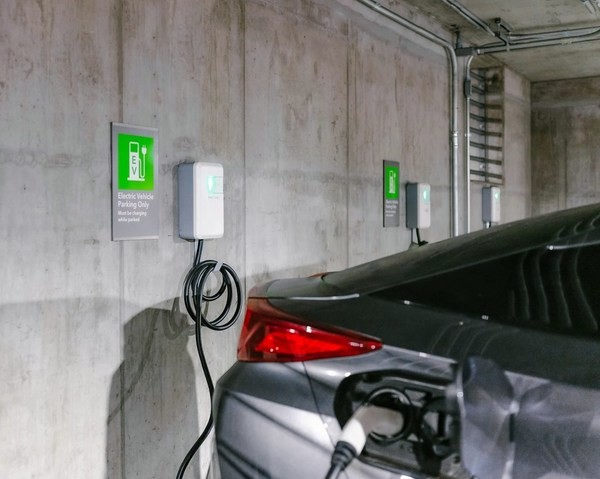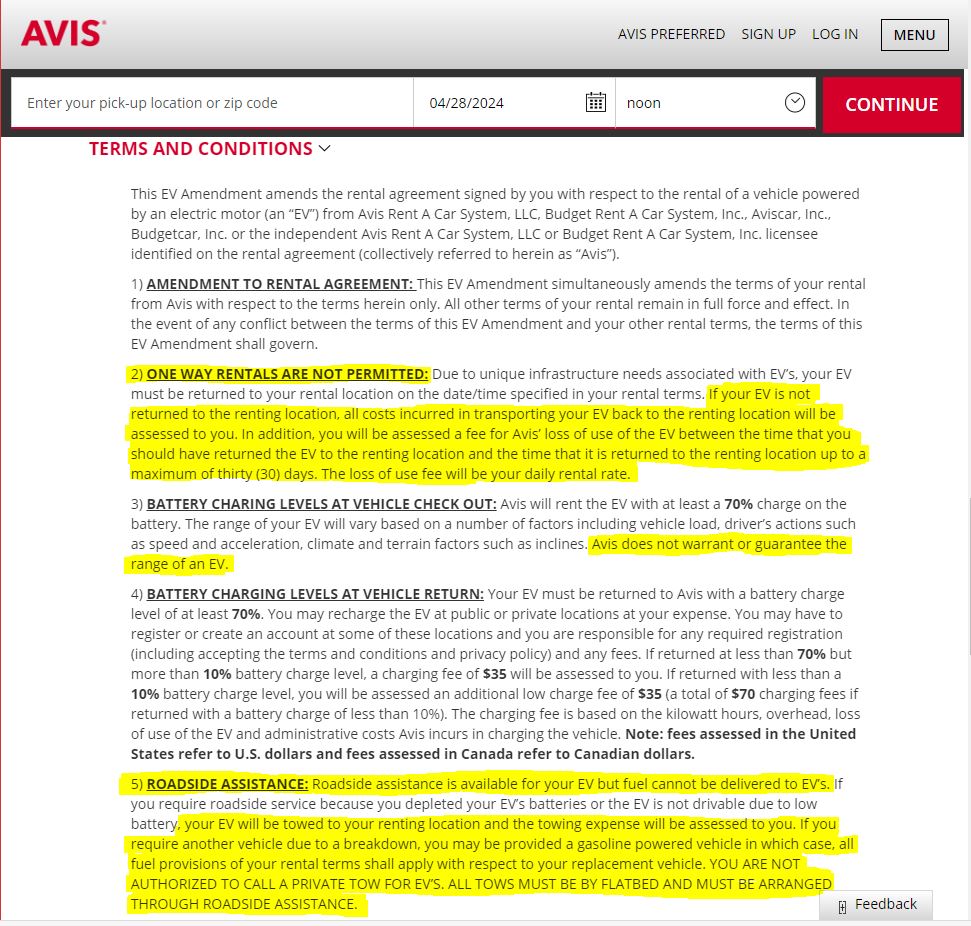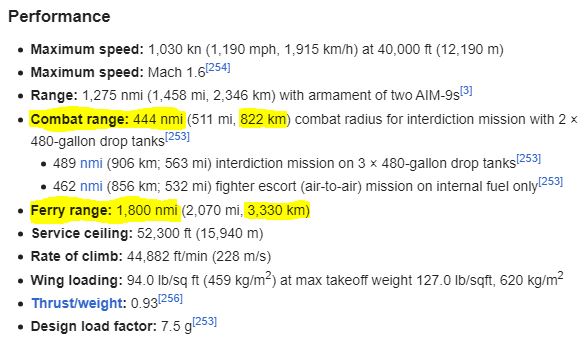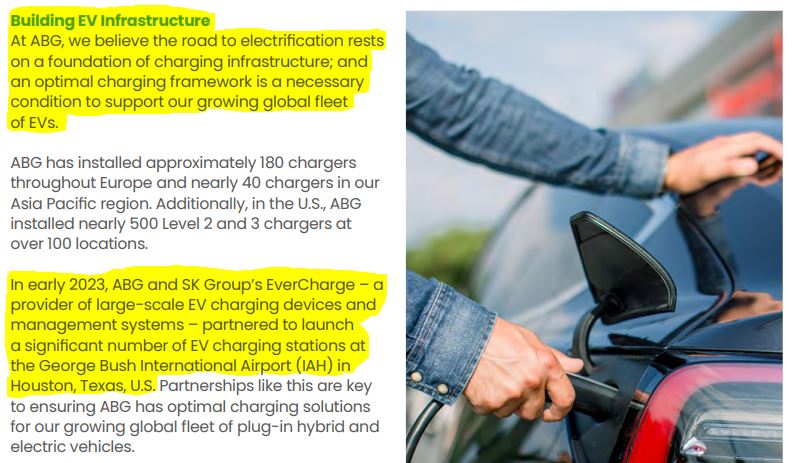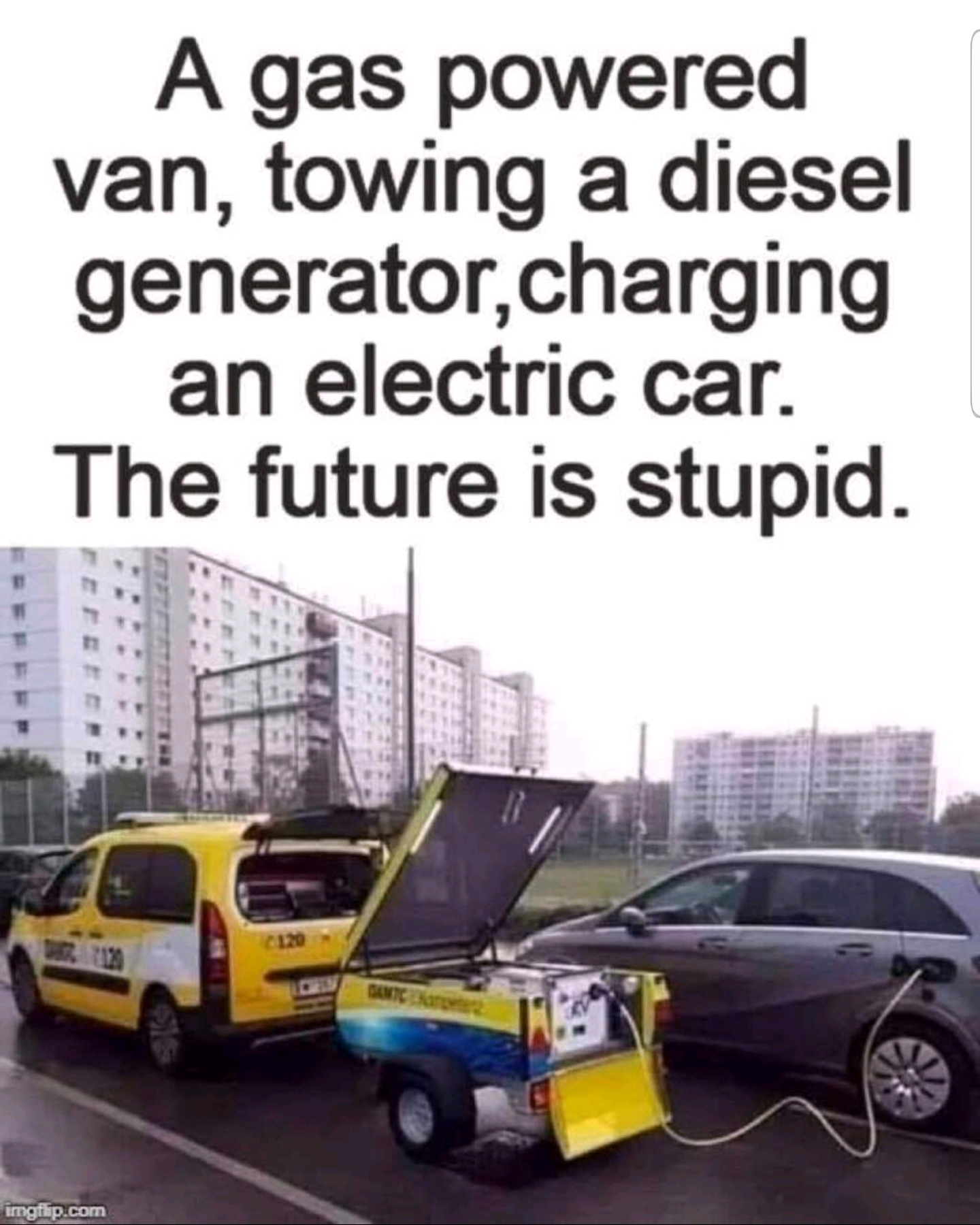| « Playing Songs Backwards and Super Secret Hidden Messages | A Toilet Won't Flush Itself, You've Got to "Get A Handle on It" » |
Electric Vehicles Have Turned Out to Be High Priced Toys
EVs (Electric Vehicles) were advertised as a replacement for standard automobiles. And that's the entire problem.
We've Got To Get These EVs Out There!
EVs were advertised as the greatest thing since sliced bread, and many people believed that, until they had a chance to use one. That's where the rental car industry comes in.
I believe the rental car industry sparked the downfall of the EV market. The prohibitive cost of EVs combined with their limited range likely kept most people from purchasing them. But the rental car industry is where many people get to truly test drive cars. Like they say, "Nothing runs like a rental!" You're not scared to slightly abuse a rental car, you paid for the insurance right? You're also likely to use it to do things you might do in your day-to-day life. Such as, run up to the store, run back up to the store for whatever you forgot, go out to dinner, then go out for drinks afterwards. Things that you would likely not do when you test drive a car from a dealer.
The rental car industry was pushed hard in 2021 through ESG and other financial incentives, to buy into the EV market. That's when the consumer side finally started to get a chance to test the EVs they've heard and read so much about.
Not long after Hertz Global Holdings emerged from bankruptcy last summer, reorganized after the Covid-19 pandemic stalled the entire car rental industry, the Estero, Florida-based company boldly announced a $4.2 billion deal to purchase 100,000 Tesla fully electric vehicles (EVs) by the end of 2022. Just like that, the race was on within the industry to transition to EVs from internal combustion engine (ICE) models.
While Hertz was first off the starting blocks, its two biggest rivals, Enterprise Holdings and Avis Budget Group, have since joined in. But just like the full-scale adoption of EVs among American drivers is going to take years, the rental car shift also will be a marathon, not a sprint. “Companies that operate fleets at our size cannot just turn on a dime and next year go all EV,” said Sharky Laguana, president of the American Car Rental Association. “Our industry wants to move as fast as it can, but there are some serious and challenging constraints.”
The initial one, Laguana said, “is just getting your hands on the damn things.”
But they did get their hands on the damn things. And with that, came the new rental agreements. Like this one from Avis/Budget.
If your battery runs dry, and you call for road side assistance, you have to pay to have the car towed -- back to the rental place. Not only that, they replace your EV with a gas-powered vehicle. That's not because they don't trust you with the EV. It's because, if they drive an EV out to where you are, the battery in the freshly charged car will likely be too discharged for you to go anywhere.
I don't know about you, but that's not the kind of mess I would like to deal with -- especially when I'm out of town, most likely on a budget, perhaps on business, likely with limited time and planned engagements.
It All Comes Down to Range
With military fighter/attack aircraft you have two ranges. For example let's look at the Boeing F/A-18E/F Super Hornet. There's combat range, and ferry range.
Combat range relates to flying out and returning back to base. Ferry range is based on a one-way flight. Remember that rental agreement? One-way rentals are not allowed, you'll need an ICE vehicle for one-way travel.
With a car, it's nearly always combat range. You expect to drive the car somewhere, and return home. An electric vehicle with a range of 200 miles, is measured as 200 miles one-way. You can only drive it out 100 miles, and 100 miles back. But that's maximum range on a full charge. Most of the time you won't have a full charge, at least not with a rental.
Now you have to consider quite a few things with your EV. If you picked it up at an airport, you'd better find a hotel with a charging station. There's a lot to consider when your charge time could be hours.
Your biggest challenge in renting an electric car will be charging it. If you’re only driving a few miles a day for the period of your rental, it might not be a big deal; as long as you return your car with a minimum of 10% charge (like Hertz requires of its Tesla rentals), you’ll be fine. But if you do start running down the battery and need to charge, knowing where and how you can do this before you set out on your journey is helpful.
First, determine what the car requires. All EVs can charge on a Level 2 charger, the public chargers you see in a lot of parking garages or sometimes at hotels or shopping malls. You should assume these are good for adding around 20 miles of range per hour to your EV (some may be faster, some slower). Charging a Tesla at a non-Tesla charger requires an adaptor, which rental car companies typically provide with the kit. Most new EVs can also use a DC fast charger, which are more powerful chargers that can recharge the car a lot more quickly than the slower Level 2 chargers; assume these chargers can add anywhere from 10-20 miles per minute when plugged into your EV.
But not all DC fast chargers are created equal, and not all EVs can charge at the same power, either. For example, if an EV can only accept 150 kilowatts of power, plugging into a 350-kW charger won’t make it charge any faster than 150 kW. One of the reasons Teslas are so popular is that there’s a large network of Tesla Superchargers that can recharge the vehicles fairly quickly, depending on how empty the car is and how powerful that Supercharger station is. There are three primary Supercharger types: 72 kW, 150 kW and 250 kW. They’re also dead easy to use — pull up, open the charge door, plug in and it automatically does its thing.
As soon as people began renting EVs and dealing with the realities of limited range, and limited charging options, they started realizing that they like their time, more than they like feeling "green."
The Push
The big idea backfired. The investors said, "If we just get the EV cars out there, people will love them. After all they sound great!" But, the investors don't drive EVs, nor are they likely to.
This is where the ESG (Environmental, Social, [and] Governance) nonsense comes in.
This is from a 2023-2024 ESG report by Avis Budget Group.
Most of the ESG report is a bunch of "feel good" word salad, with a few parts about EVs. Those parts list some of the issues they are running into as it relates to EVs being in their fleet. That's not very promising.
Reality Comes For Us All
The EVs are on their way out almost as quickly as they came in. This article is from January 11, 2024.
Hertz’s investor report makes it clear it’s not just about consumer demand. It’s about Tesla.
The headline we (and others) are using to describe Hertz selling off some of its substantial fleet of EVs is true. Hertz is dumping 20,000 EVs, a not-insignificant portion of its roughly 50,000-EV fleet (as of October) and a third of its total EV fleet globally. According to a filing with the Securities and Exchange Commission related to the sale, Hertz "expects to reinvest a portion of the proceeds from the sale of EVs into the purchase of internal combustion engine ("ICE") vehicles to meet customer demand."
Tell me you're lying, without telling me you're lying. Hertz is ditching their EVs, because of decreased customer demand, and buying more ICE vehicles -- to meet customer demand.
If the overall customer demand didn't go down, then people are still requesting cars -- just not EVs.
If rental car companies, in the business of fleet management, can't make EV rentals profitable -- why would anyone assume that they would work out for a private owner? The article also points out the increase in accident related repairs for the EVs. Does that not effect auto insurance costs? Insurance on a high-end car is always more because of increased repair costs.
The Final Nail in The Coffin
I saw this article the other day, and it cemented the idea that EVs don't have a bright future.
BAE & Cummins to Make Hybrid Drivetrain for Transit Buses
Hybrid electric buses don't require investment in extensive charging infrastructure.
BAE Systems and engine maker Cummins yesterday announced a new collaboration on the integration and certification of a B hybrid-compatible diesel engine and hybrid electric drivetrain for the transit market. The targeted product launch is 2027.
BAE Systems will supply its electric drive hardware to interface with the engine and form a full hybrid electric drivetrain, as well as provide engineering support and system integration expertise.
BAE and Cummins have worked together to develop hybrid electric solutions for buses since 1994.
Hybrid electric buses facilitate workforce development for training on high-voltage systems and do not require investment in extensive charging infrastructure.
Public transportation doesn't have an answer for EVs either. The proposed answer is hybrid vehicles. Is there a demand problem with public transportation, such that EV busses are not a good idea?
It seems that everywhere transportation is important, internal combustion engines are used. Where are all the EV firetrucks, or ambulances? You won't find them, because EVs don't have the range, and are not reliable enough for serious tasks.
There won't be an extensive charging infrastructure, because there is no demand for electric vehicles that don't compare with existing internal combustion vehicles.
EVs were always fighting an uphill (cart before the horse) battle. Government policy shouldn't be used to "create demand" in any market. It just doesn't work well, because government policy is rarely driven by real need. There is a demand for vehicles, but it's already been met. The "demand" for electric vehicles is because of the "Climate Change" scam.
Maybe it's time for governments to come to the same conclusion that those with EV experience have. EVs are not all they are cracked up to be.
Are we going to start seeing bumper stickers on EVs, "My Other Car has an Internal Combustion Engine."
What do you think?
Please leave a comment, like it or hate it... You DO NOT need to register to leave a comment. Email addresses are NOT used. Just make one up "someone@somehost.com"
